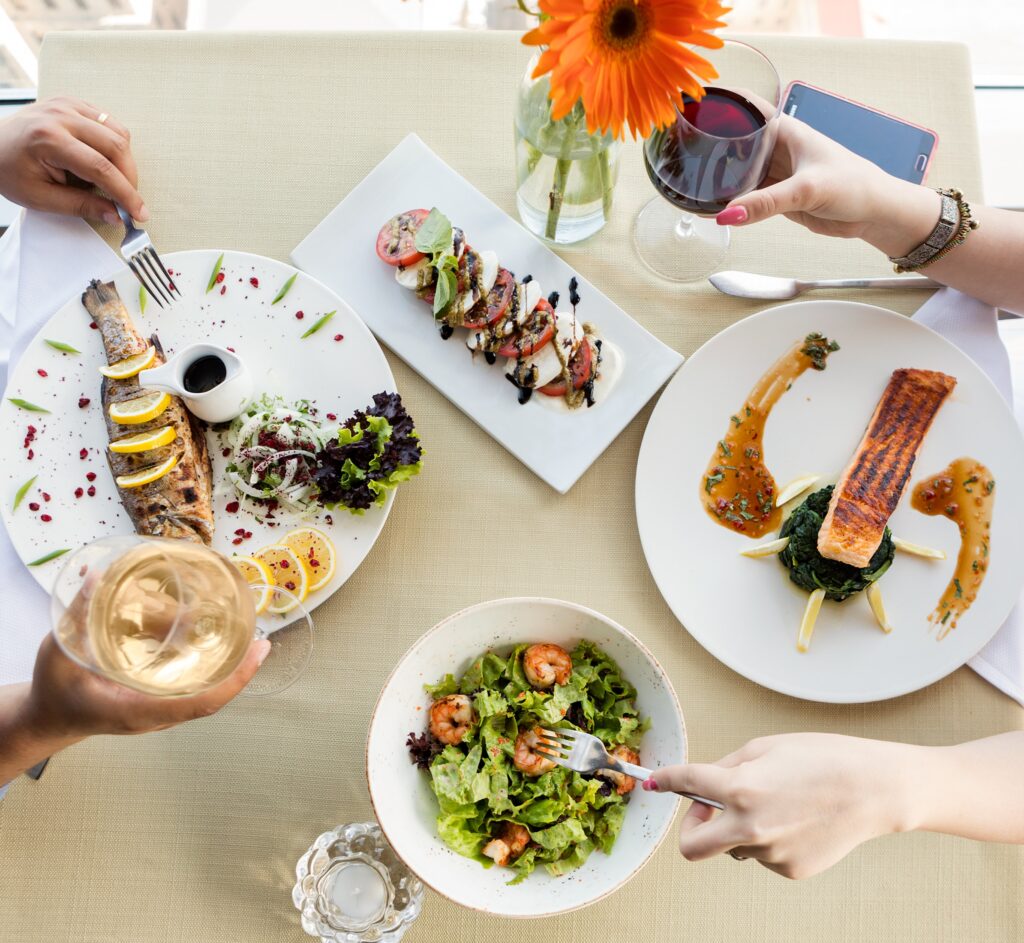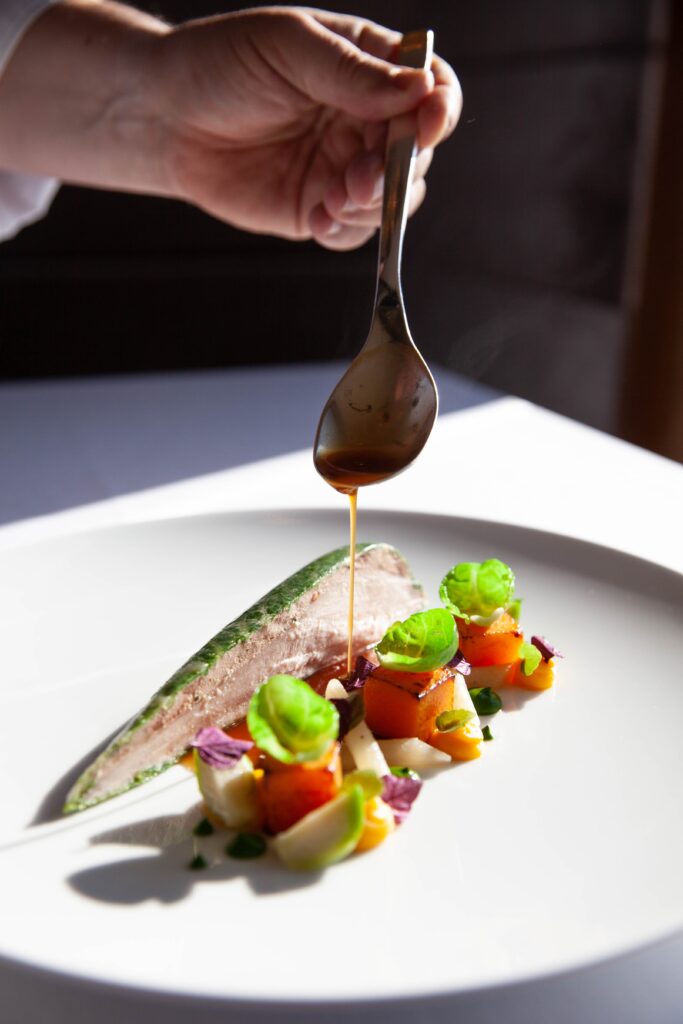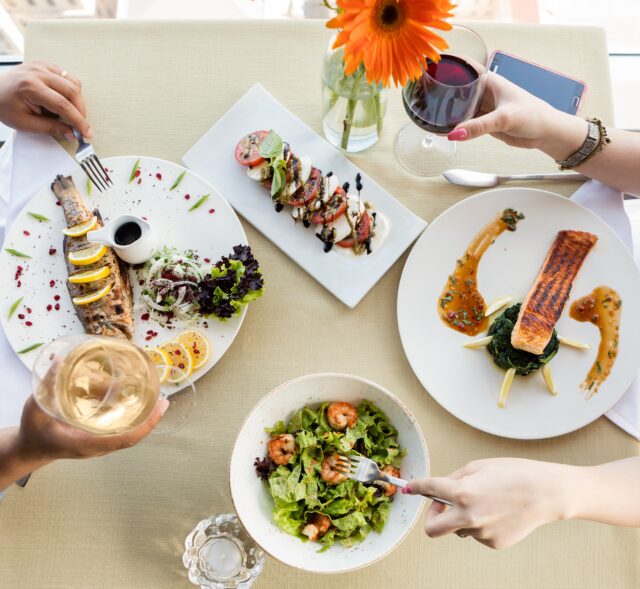In this article, you’ll explore different strategies to learn about the background and philosophy of a chef or culinary team. You’ll also discover how understanding this information can enhance your dining experience.

This image is property of images.unsplash.com.
Understanding the Need to Learn About a Chef’s Background and Philosophy
When thinking about dining out, you often consider the ambiance, reputation, and price of a restaurant. However, have you ever thought about the chef behind the cuisine? Their personal history, professional journey, and food philosophy significantly shape the dining experience.
Reasons to delve into a chef’s background
Learning about a chef’s background gives you insights into their culinary journey. This can include their culinary education, experiences, and influences. Their training often shapes their technique and execution of dishes, while their personal experiences and cultural heritage often inspire their ingredients and style.
The importance of understanding a chef’s philosophy
A chef’s philosophy reflects their values and attitudes towards food, cooking, and dining. It influences their choice of ingredients, culinary techniques, and presentation styles. It may revolve around sustainability, farm-to-table, fusion cuisine, or any number of approaches. Understanding this philosophy can greatly enhance your appreciation of their food.
Ways this information enhances your dining experience
Knowing a chef’s background and philosophy adds richness to your dining experience. It allows you to appreciate the love, skill, and thought poured into each dish. Moreover, it guides you in selecting restaurants that align with your own food values and preferences.
Researching a Chef’s Professional Background
Utilization of online resources
The internet provides countless resources to learn about a chef’s professional background. Restaurant websites, culinary portals, and food blogs often feature chef profiles and interviews. These give you a wealth of information about a chef’s culinary journey and philosophy.
Looking into a chef’s culinary education and early career
A chef’s culinary education provides the foundational knowledge and skills for their career. Their early career, meanwhile, forges their personal style and approach. Understanding these aspects helps you appreciate a chef’s technical finesse and culinary creativity.
Highlighting notable achievements and recognition
Awards, accolades, and recognitions signal a chef’s talent and impact on the culinary world. They also give an insight into the chef’s specializations and strengths.

This image is property of images.unsplash.com.
Familiarizing with a Chef’s Culinary Style through Their Dishes
Analyzing the menu for hints at culinary style
A chef’s menu serves as a statement of their culinary style. It reveals their preferred ingredients, techniques, cultural influences, and creative flair. Analyzing the menu can help you unearth these facets.
Appreciating the flavor profiles present in different dishes
Each dish crafted by a chef showcases a certain flavor profile. This mirrors their philosophy, whether it be the harmony of flavors, the boldness of spices, or the freshness of ingredients. Savoring these elements deepens your culinary experience.
Identifying influences from different cooking traditions
Many chefs draw inspiration from various cooking traditions. This might be dishes from their native country, experiences from their travels, or techniques learned from celebrated chefs. Grasping these influences adds depth to your understanding of the dishes and their creator.
Understanding a Chef’s Philosophy through Their Ingredients
Relevance of sourcing and sustainability in a chef’s philosophy
Many chefs place great importance on the sourcing of their ingredients. This often reflects a philosophy of sustainability, respect for nature, and support for local producers.
Significance of seasonal and local ingredients
Chefs often capitalize on the flavor and freshness of seasonal and local produce. This inclination underlines their commitment to providing high-quality, authentic dishes.
Understanding the narrative behind ingredient choices
A chef’s ingredient choices tell a story. This might be a tale of their childhood, travels, cultural heritage, or personal beliefs. Unraveling this narrative enhances your appreciation of the dishes.

This image is property of images.unsplash.com.
How a Chef’s Personal History Shapes their Culinary Journey
Impact of a chef’s cultural heritage on their food philosophy
A chef’s cultural heritage often greatly influences their food philosophy. It can shape their preference for certain ingredients, flavors, and cooking techniques. This cultural imprint makes their fare unique and authentic.
Influence of personal experiences on a chef’s culinary journey
A chef’s personal experiences, both in and outside the kitchen, heavily influence their culinary style. These experiences often inspire their passion for certain foods, their culinary innovations, and their drive to excel.
Role of travels in the shaping of a chef’s cooking style
Extensive travels allow chefs to explore diverse cuisines and develop a broad gastronomic perspective. This exposure often enriches their culinary style, leading to a fusion of flavors and cultures in their dishes.
Looking at a Chef’s Influence on their Culinary Team
Understanding the dynamics of a culinary team
A chef not only leads the culinary team but also shapes its dynamics. Their philosophy, style, and expectations often radiate throughout the kitchen, creating a distinct culinary identity.
Highlighting the role of a chef in training and mentoring the team
Chefs play a crucial role in nurturing and mentoring their team. They impart their knowledge, skills, and ideals, thereby fostering a culture of excellence and a passion for food.
Role of a chef’s philosophy in kitchen management
A chef’s philosophy often guides their kitchen management. This includes their approach to teamwork, service, sourcing, waste management, and more.
Understanding a Chef’s Philosophy through Their Cookbooks and TV Appearances
Analysis of cookbooks for insight into chefs’ philosophies
Chefs’ cookbooks serve as autobiographical pieces, capturing their culinary journey, philosophy, and style. Each recipe, anecdote, and piece of advice enriches your understanding of the chef and their cuisine.
Understanding a chef’s philosophy through television and online cooking tutorials
Television and online cooking tutorials offer a glimpse of a chef’s personality, philosophy, and skills. They provide a platform for chefs to share their culinary wisdom, passion, and creativity.
Role of media in promoting a chef’s culinary philosophy
Media plays a significant role in amplifying chefs’ philosophies. They give wider reach to chefs’ messages, be it about sustainable farming, fusion cuisine, or culinary craftsmanship.
Interacting Directly with the Chef or Culinary Team
Importance of dining at chef’s table experiences
Dining at a chef’s table is akin to an intimate, behind-the-scenes tour of the culinary world. It allows you to interact directly with the chef, ask questions about the meal, and witness the kitchen’s energy and efficiency.
Learning from food and wine pairing events
Food and wine pairing events demonstrate a chef’s expertise in harmonizing flavors. They enable you to learn about the intricacies of food and wine pairing, guided by the chef’s philosophy.
Engaging in cooking classes by the chef
Cooking classes provide hands-on experience and direct interaction with the chef. They also let you understand the chef’s techniques, ingredient preferences, and culinary tips.
Notable Instances Of Chef’s Philosophy Influencing Culinary World
Cases of philosophy-driven food trends
The philosophy of influential chefs often triggers food trends. This could range from farm-to-table movements, fusion cuisine trends, to zero-waste initiatives.
Impact of a chef’s philosophy creating a unique dining experience
Guided by their philosophy, chefs create distinct dining experiences. These experiences not only satisfy your taste buds but also engage your senses, mind, and emotions.
Influence of chef’s philosophy on restaurant’s reputation
A chef’s philosophy significantly affects a restaurant’s reputation. It helps distinguish the establishment in the competitive culinary landscape, attract like-minded customers, and maintain consistent quality.
Conclusion: The Impact of Understanding a Chef’s Background and Philosophy
Enhancing culinary experiences by understanding a chef’s philosophy
Understanding a chef’s philosophy allows you to fully appreciate their culinary creations. It fosters a deeper connection between you and the food, transforming dining into an enlightening and enriching experience.
Informed dining choices through knowing a chef’s background
Knowing a chef’s background guides your restaurant choices. It helps you select establishments that reflect your food preferences, align with your dietary needs, and resonate with your values.
Appreciating the art of dining beyond the taste of food
Learning about the chef or their culinary team’s background and philosophy refines your appreciation for dining. It elevates it from a mere gustatory pleasure to an art form that involves skill, creativity, commitment, and passion.










